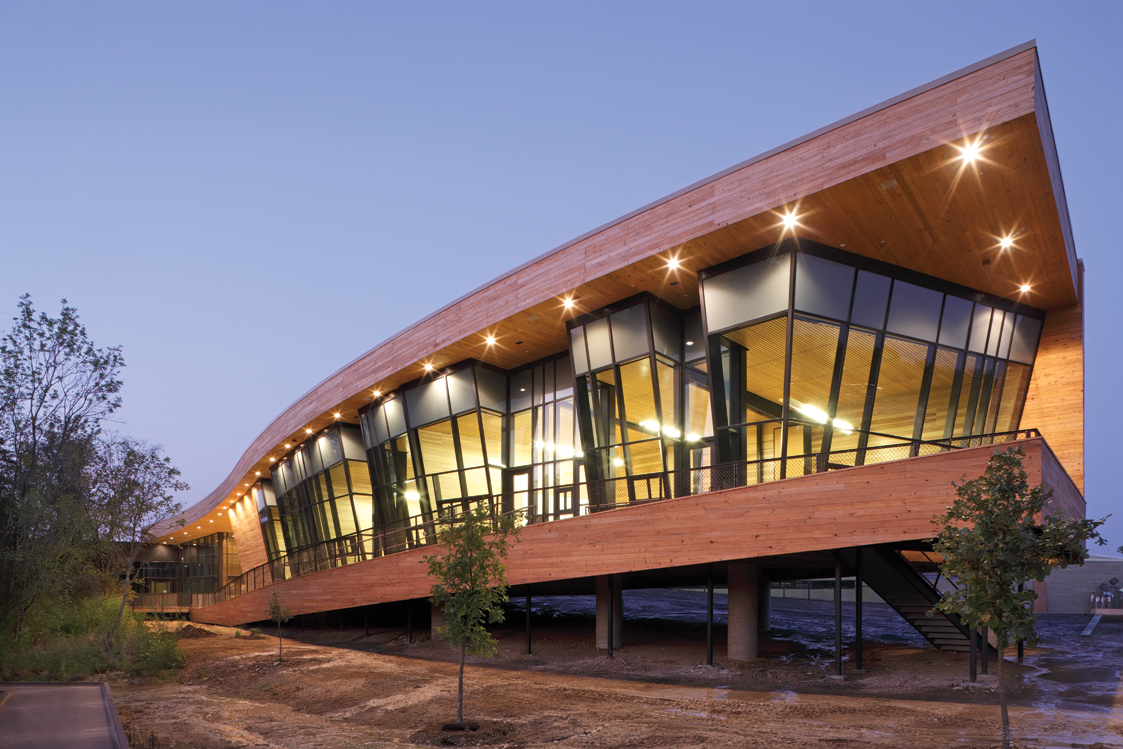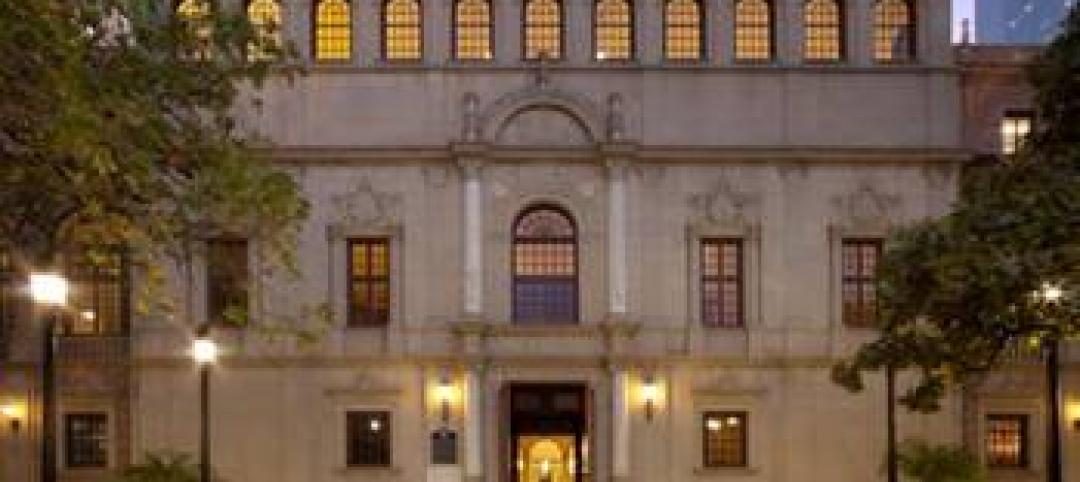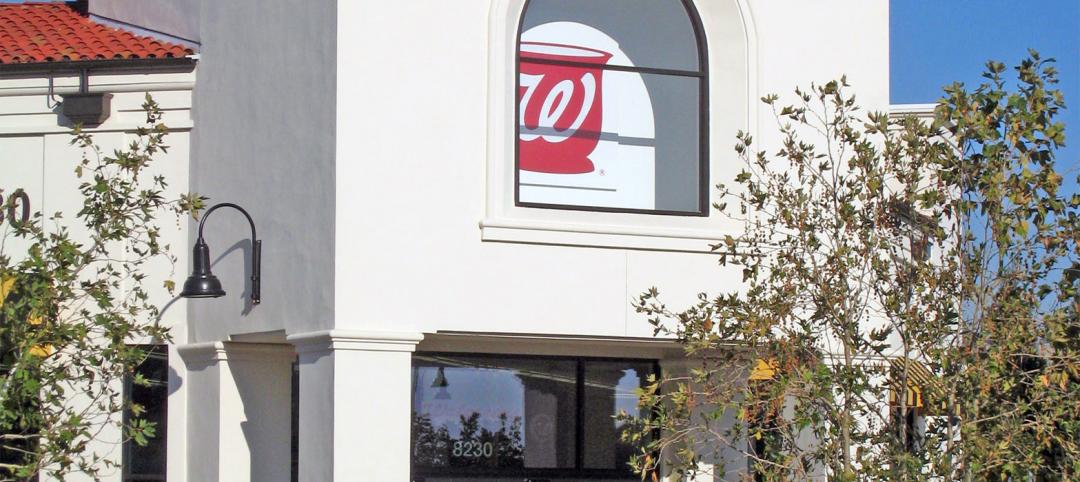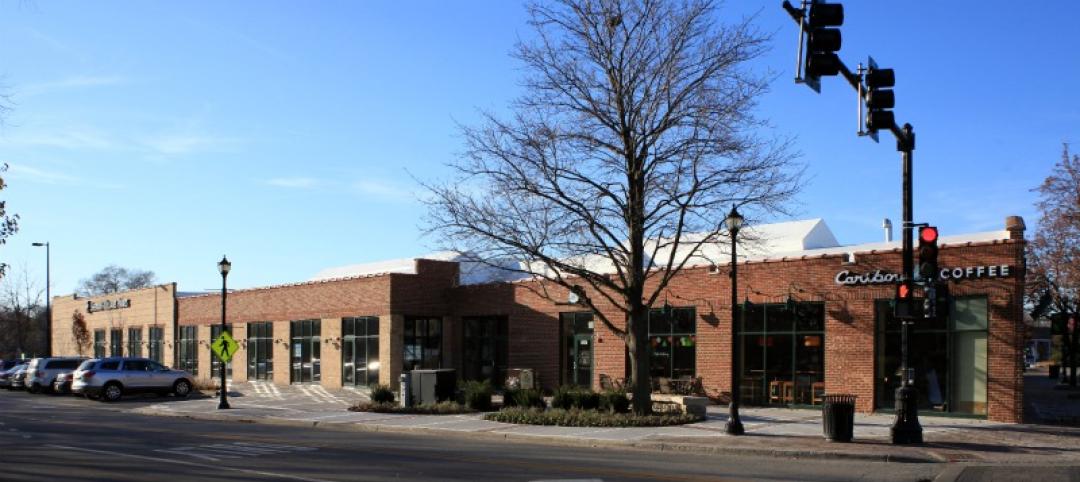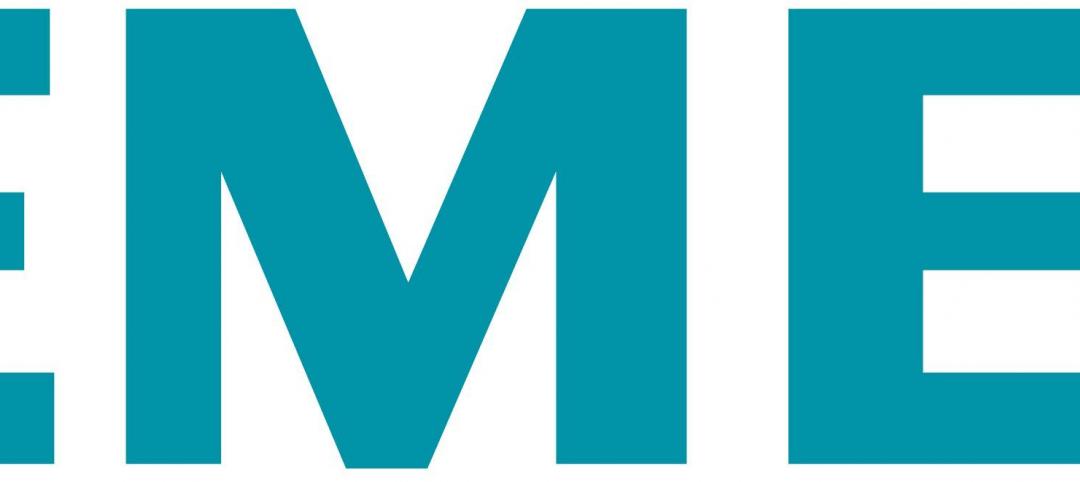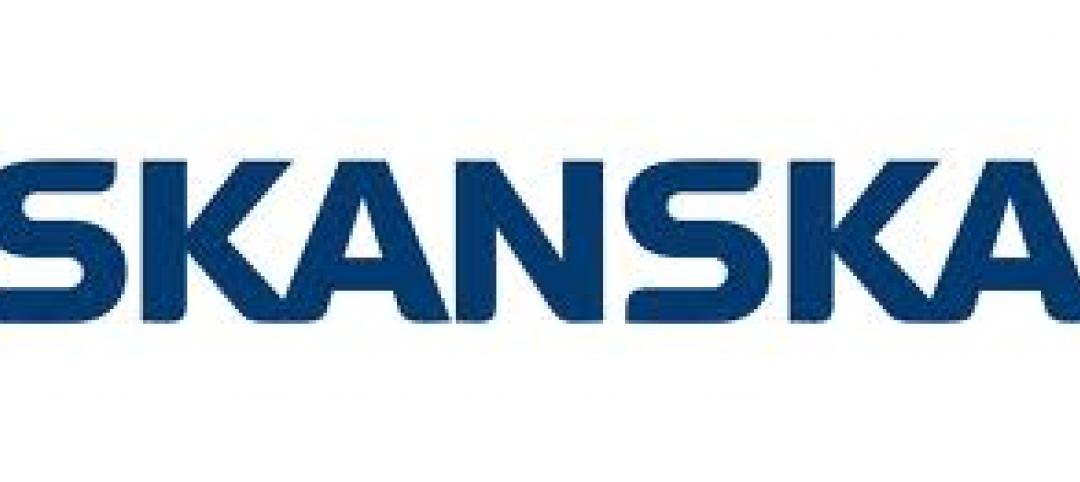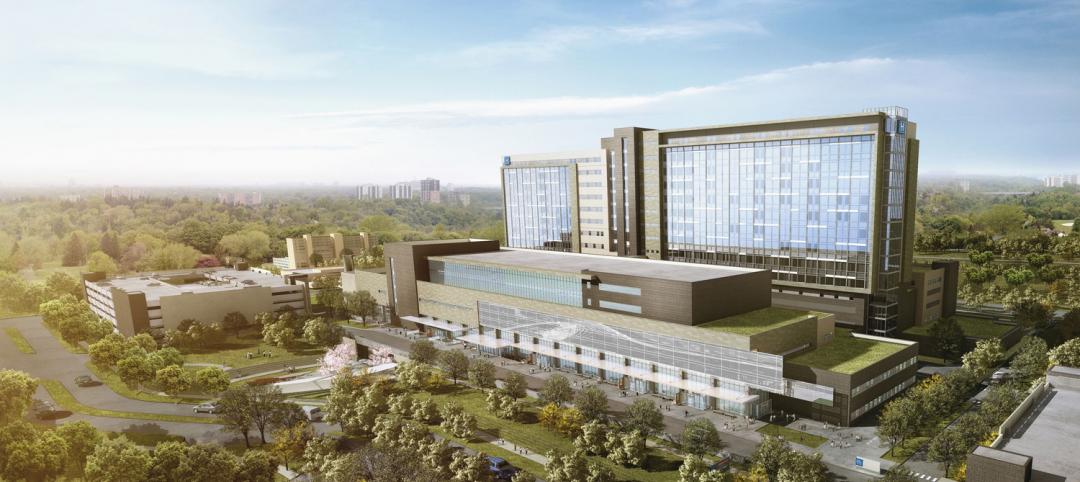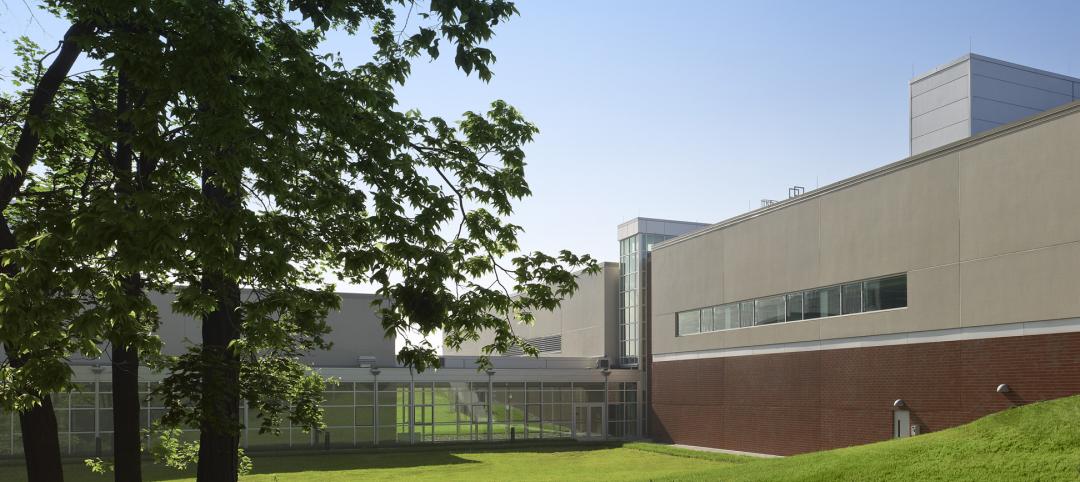Located just eight miles from downtown Dallas, the Trinity River Audubon Center seems a world away, sitting on 120 acres within the 6,000-acre Great Trinity Forest—the largest urban hardwood forest in the U.S. It seems only natural that the 22,000-sf facility would be designed to blend in with its wooded surroundings, but the architects’ decision to clad parts of the building in cypress was an unexpected choice.
The locally sourced cypress was selected “for its beautiful appearance, as well as its natural rot resistance and longevity,” says Gary DeVries, project manager for Brown Reynolds Watford Architects, the Dallas-based design firm that collaborated on the project with Antoine Predock Architect, Albuquerque, N.M.
The center has three wings—each expressing a different site element: forest, prairie, and water; the cypress siding was used on the exterior walls, fascia, and soffits of the center’s education or “forest” wing. An exhibit hall, gift shop, and administrative offices occupy the other two wings. Black anodized aluminum panels, concrete tilt-up, pre-weathered metal panels, and rough sawn boards were used to clad other sections of the building.
The three wings are tapered, angled, and cantilevered, sometimes to extremes (in one instance, a cantilevered canopy extends 48 feet) so that from the air the facility resembles a bird in flight. The building’s visual movement made it difficult to frame so the concrete subcontractor and the steel fabricator had to precisely coordinate their work. Because of those angles, the glazing contractor had to contend with creating a curtain wall with vertical framing installed on a cant ranging from 70 to 90 degrees, some of which varied between the 70 and 90 degrees on the same elevation. Moreover, curtain wall framing members ranged in height from 10 to 20 feet.
Ultimately, the team decided it was easier to custom fabricate the curtain wall on site. It took five months to fully enclose the building. Fortunately, the cypress cladding went up without a hitch, according to Jared Hicks, LEED AP, project manager for general contractor Sedalco, Fort Worth, Texas. “The building slopes a lot, there are large elevation changes, and the architects wanted boards running true horizontal in some places and running with the slope in other places,” says Hicks, “but installation was standard tongue and grove and the siding went up pretty easily.”
Hard to believe, but the building’s dramatically angular architecture wasn’t the most difficult problem the Building Team encountered. It was rain. And more rain. “In June the rain started coming and it didn’t stop, which is very unusual for us,” says Hicks. The team was only able to work six days that month and lost more than 130 days to weather over the course of the project. The Trinity River swelled to within 10 feet of finish floor and made the entrance to the job site impossible. Given the extremes of weather, the team was granted an extension and completed the $12.5 million facility one month before the center’s planned grand opening.
Visitors to the center have access to classrooms, indoor and outdoor museum exhibits, a discovery garden, and a below-grade aquarium designed to look like it’s part of the adjacent pond. Sedalco created more than two miles of nature trails, which included construction of bridges and boardwalks. They had to tread lightly, however, because they were under orders to disturb as little vegetation as possible. All equipment had to fit on the trails, which were only six feet at their widest. Steel erection and deck framing for the bridges and boardwalk wound up having to be completed without equipment.
The center has submitted for LEED Gold certification, with features such as the locally sourced cypress and other sustainable woods (including pecan millwork and wall paneling and bamboo floors), a partially vegetated roof, rainwater collection, and insulation made from old jeans contributing to the center’s sustainability. Perhaps the most significant green element is the building’s former brownfield site. Despite its location within a forest preserve, the land had been used for more than 15 years as an illegal dumping ground, and site remediation cleared away 1.5 million tons of trash. Native hardwood trees and prairie grasses now grow in place of trash piles. BD+C
Related Stories
| Jan 6, 2012
Doug Wignall named president of HDR Architecture
HDR Architecture, Inc. is known for its award-winning designs for urban environments, campuses and buildings in the healthcare, science and technology, civic, justice and higher education markets.
| Jan 6, 2012
Gensler unveils restoration and expansion of Houston's Julia Ideson building
The "new" building will serve as a repository of Houston memorabilia and rare archival material as well as the city's official reception space and a venue for exhibits, meetings and other special events.
| Jan 6, 2012
New Walgreen's represents an architectural departure
The structure's exterior is a major departure from the corporate image of a traditional Walgreens design.
| Jan 6, 2012
Summit Design+Build completes Park Place in Illinois
Summit was responsible for the complete gut and renovation of the former auto repair shop which required the partial demolition of the existing building, while maintaining the integrity of the original 100 year-old structure, and significant re-grading and landscaping of the site.
| Jan 4, 2012
Siemens acquires Pace Global Energy Services
Acquisition will enhance portfolio with new energy consulting and management services.
| Jan 4, 2012
Shawmut Design & Construction awarded dorm renovations at Brown University
Construction is scheduled to begin in June 2012, and will be completed by December 2012.
| Jan 4, 2012
Skanska acquires Industrial Contractors
Industrial Contractors Inc. is a contractor in the commercial, industrial and power markets of the Midwest. The company employs 2,400 people and in 2011 the revenues are estimated to be approximately $500 million.
| Jan 4, 2012
HDR to design North America’s first fully digital hospital
Humber River is the first hospital in North America to fully integrate and automate all of its processes; everything is done digitally.
| Jan 4, 2012
New LEED Silver complex provides space for education and research
The academic-style facility supports education/training and research functions, and contains classrooms, auditoriums, laboratories, administrative offices and library facilities, as well as spaces for operating highly sophisticated training equipment.
| Jan 3, 2012
Gilbane awarded $88M Contract for Ohio elementary school construction
The new award, which comprises the construction of five new elementary schools and demolition of 11 older facilities, is the latest K-12 building program managed by Gilbane for the Ohio School Facilities Commission since 1998.


